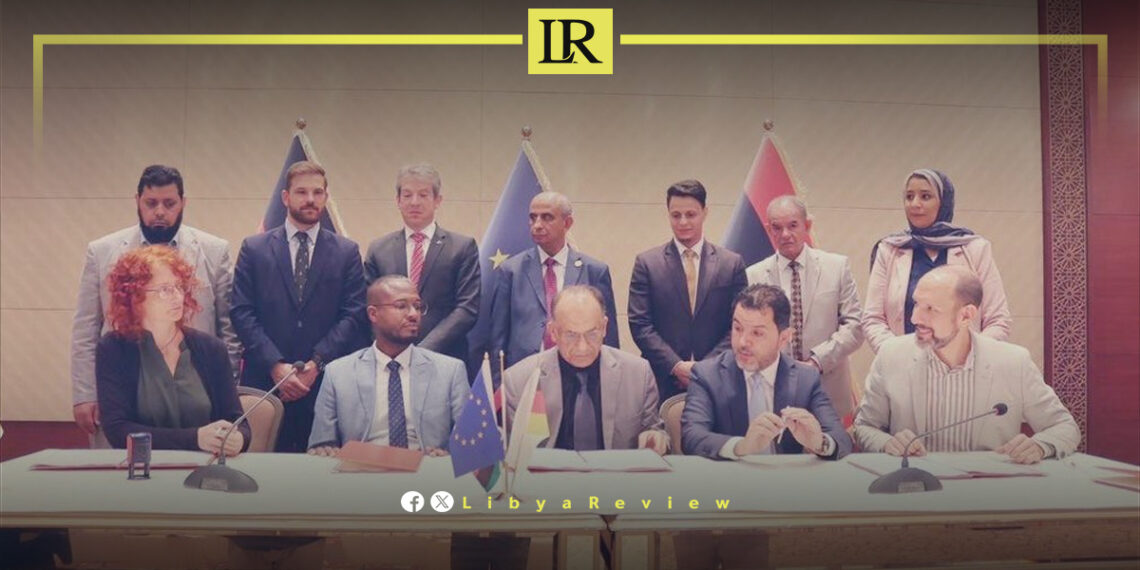The European Union Mission to Libya announced the signing of new partnership agreements to advance sustainable transition projects in the fields of energy and environment. The agreements were formalized during a ceremony held in Tripoli on Tuesday as part of the EU-funded STEP Program — Sustainable Transition for Energy and Environment Partnership.
The initiative, co-financed by Germany and implemented by the German Agency for International Cooperation (GIZ), aims to help Libya develop an integrated national framework linking energy, water, and climate policy. The program focuses on improving governance, regulatory systems, and technical capacities to support Libya’s long-term environmental sustainability.
According to the EU Delegation, the STEP program supports the Ministry of Environment, the Ministry of Water Resources, and the Renewable Energy Authority in designing a coordinated approach to resource management. The EU described the initiative as part of its broader strategy to promote sustainable growth and good governance across Libya’s public institutions.
“The European Union is proud, through the STEP initiative, to stand with Libya as it moves toward inclusive, citizen-focused development that protects natural resources and promotes stability,” the delegation said.
The signing ceremony was attended by Abdulsalam Jad Al-Moula, acting Minister of Water Resources in the Government of National Unity, along with Ludwig Jung, Deputy Head of the EU Delegation to Libya, and senior experts from the Ministries of Environment and Water Resources.
In parallel, Tripoli hosted the launch of the EU–Libya Water Management Facility, another component of the EU’s partnership for sustainable resource management. The facility, jointly funded by the EU and Germany, will be implemented by GIZ and the Italian Agency for Development Cooperation (AICS).
It will support 12 municipalities across Libya in upgrading water data systems, improving service delivery, and strengthening resilience to water scarcity — one of the country’s most urgent environmental challenges.


